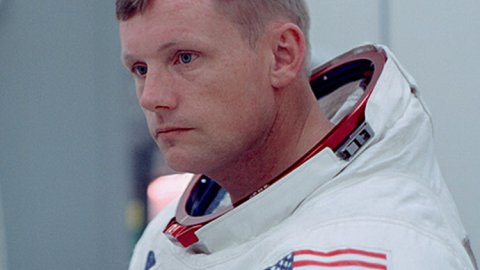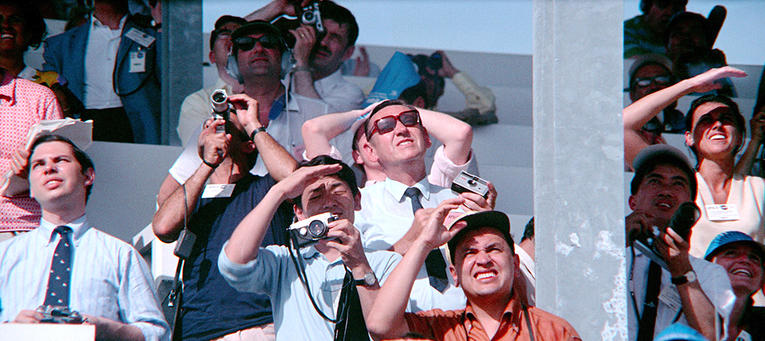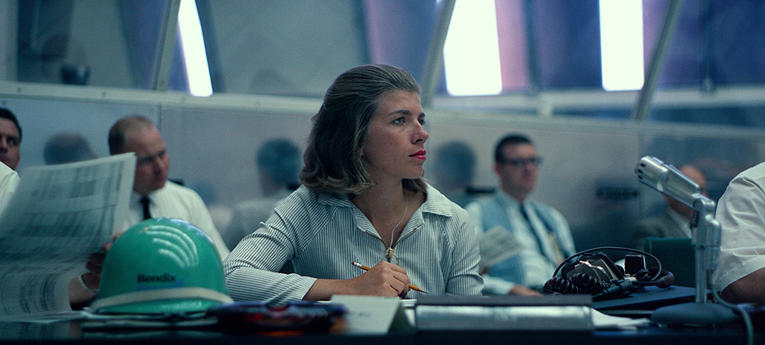
"A reminder to us all of what humanity can achieve"
Posted on Mon 24 June 2019
Fifty years since humankind walked on the moon, archive documentary Apollo 11 gets lift off this week. Given their love for all things astronomical, we recently invited the We The Curious Planetarium Team to attend a special preview with us and afterwards they put pen to paper to give us their perspectives on a film that looks back at those momentous days and hours in 1969 when humankind took a giant leap into the future.
Lee Pullen, We The Curious Planetarium Manager
Few topics capture people’s imaginations as much as human exploration of space. Even 50 years on, the Apollo missions are still held as a high-water mark for human endeavours. And yet this era happened long before I was born, and must seem like ancient history for the children of today! The power behind the film Apollo 11 (opening of Fri 28 June) is its stunning use of documentary footage to make this period of time tangible, relatable, and relevant.
It’s a story that many of us know well, but Apollo 11 brings out hidden details. I hadn’t realised that the astronauts spent such a long time in quarantine after the mission, and seeing this footage was a highlight. I’m sure that even Apollo enthusiasts will discover something new.
Earth-bound scenes are full of the trademark vibrant colours of the 1960s. The fashion and technology on screen are clearly from another age, but the people’s visible excitement traverses the decades and you can’t help but be swept along with them. This contrasts with the nearly mono-chromatic footage of the Moon, itself so alien as to seem timeless.
During the film I was struck by the sheer magnitude of the effort made by the scientists, engineers, and of course astronauts of the time. It made me wish that the Apollo-era had, as planned, been just the springboard for long-term human exploration of our Solar System and beyond. Space agencies such as NASA and ESA do fantastic work, but perhaps we’ve lost a little of the Apollo spirit. Apollo 11 is a reminder to us all of what humanity can achieve.

Anna Henley, We The Curious Planetarium Officer
I really enjoyed the film, the quality of the footage was fantastic and it really gave a sense of how incredible an achievement it was at the time. I particularly enjoyed the little retro graphics that they used to demonstrate all of the spacecraft manoeuvres. When I was first making the Apollo Command and Service Module (CSM) flyover for our Planetarium show Exploring the Solar System I remember trying to look up all of that information about the orientation of the spacecraft and how things were docked/undocked etc. and I couldn’t really find much information about that, so that was quite interesting. Although I now realise that the CSM is flying in the opposite direction from what it should be in that scene – whoops!
Paul Cornish, We The Curious Planetarium Operator
As Apollo 11 began I was immediately struck by the footage of the rocket being delivered to the launch site on gigantic tank wheels. Before today I don’t think I’d ever thought about how delivering the rocket to where it’s supposed to be before its even launched was a challenge in itself. This was just one of the many moments throughout the course of the film that successfully conveyed just what a gargantuan feat the mission really was.
Considering the film consisted almost entirely of archive footage with no narration, I was impressed by how much a connection I felt to Armstrong, Aldrin, and Collins. Interspersing images from the lives of the three astronauts with footage of the mission was an incredibly clever and subtle way of forging that connection with the audience. It paid off massively towards the end with the extremely effective montage set to the tune of ‘Mother Country’.
While the film is slow paced, I feel this worked to its advantage. The gradual build-up, first to the launch, then to the landing itself, was gripping, and added to the immersive quality of the film. It was hard not to feel that you were there in 1969, experiencing history first-hand.
Neil Armstrong descending the ladder and speaking his famous words is probably one of the most familiar pieces of footage of all time. The most impressive aspect of Apollo 11 is that I felt like I was seeing it for the first time.

Antonia Forster, We The Curious Planetarium Operator
Landing on the Moon is arguably humanity’s greatest achievement of all time. However, the story has been told so many times - and technology has moved on so much in the last fifty years - that it’s easy to forget just how monumentally ambitious, and dangerous, the Apollo 11 mission was. Here at the Planetarium, we know it takes careful artistic direction to build suspense about such an infamous story. Fortunately, the Apollo 11 documentary delivers just that.
Developed entirely from real footage, the shots have obviously been carefully considered and cut together. The visuals are a delight; switching from black-and-white CCTV footage, to shaky handheld video cameras clutched by awestruck spectators, to helicopter fly-bys, to a view from the elevator (dirty window and all) as astronauts ascend to their module. Glimpses of ‘60s-era technology – typewriters, cathode-ray TVs, and huge film cameras – are a surprising backdrop and sharp reminder of the antiquated technology of the time. (I apologise if that sentence made anyone feel old). This film does a fantastic job of communicating the sheer awe of Apollo 11 – the colossal size of the rocket, the explosive power of its launch, the suspense of the four-day flight and treacherous landing. If you’re interested in Apollo, or cinematography, or want to feel as if you’ve watched the Moon landing for the first time; go watch this movie.
Apollo 11 opens on Fri 28 June - book tickets now.
The We The Curious Planetarium offers family-friendly experiences daily, as well as 16+ shows on most Thursday and Friday evenings. A spectacular new show ‘In the Steps of Apollo 3D’ premieres on 20 July, telling the story of the Moon landing and its legacy through 360 degree visuals and contemporary classical music.
